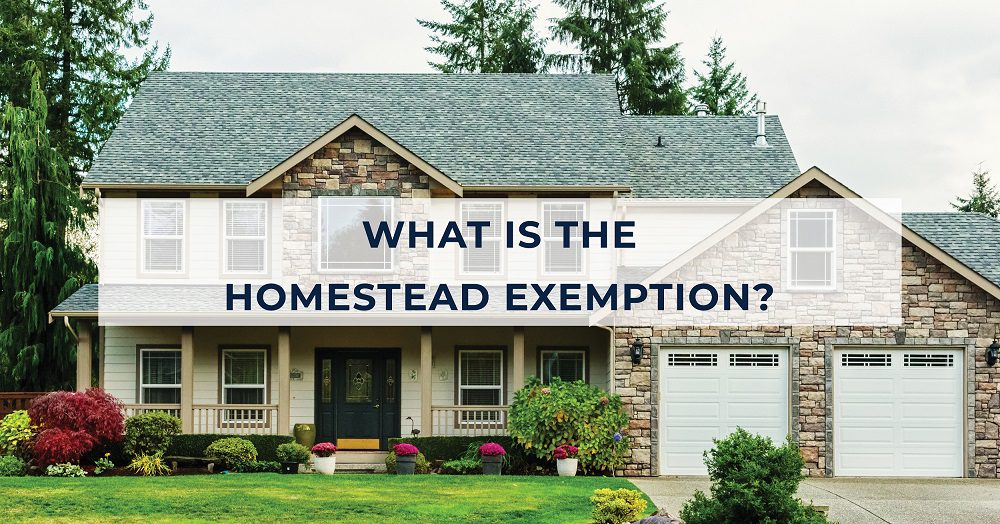
By Alena Kairys
Feb 17, 2023Paying property taxes each year is part of the reality of being a homeowner, but there’s a way you could minimize this expense. A homestead exemption can save you money on your property taxes, and you don’t need to be a farmer to take advantage of it! Learn what the homestead exemption is and how it can give you a break on your taxes.
What is the Homestead Tax Exemption?
The homestead exemption benefits homeowners by offering two things: protection from certain creditors in case of bankruptcy or the death of a spouse, and a reduced property tax. We’ll be discussing the latter here. Property tax is determined by your home’s assessed value, which your local government determines based on several factors. The homestead exemption reduces how much of your assessed value gets taxed, potentially saving you hundreds of dollars in taxes.
For example, if your home’s assessed value is $250,000 and your property tax totals 1%, you would pay $2,500 in property taxes. However, if you have a homestead exemption of $20,000, only $230,000 of your home would be taxed, lowering your property tax to $2,300 and saving you $200.
The deduction amount varies widely by state and county; sometimes it’s a flat amount or a percentage of your assessed value or acreage. Having a homestead exemption in effect is beneficial outside of the upcoming tax season—it gives you a cushion against rising property values since you won’t have to pay the full amount.
Eligibility
Each participating state and county will have their own specifications, but a general requirement for eligibility is that you own your home and live in it as your primary residence. You can’t receive an exemption on a second home or investment property, and you’re limited to one per household. If you’re also part of a special population, such as being a senior citizen, a Veteran or surviving spouse, or disabled, you may qualify for additional property tax exemptions. Applying for the homestead exemption usually involves sending proof that you live in and own your home. Some local jurisdictions may require you to refile for an exemption each year, but some may not. If you move, you’ll have to file a new application. Similarly, if you bought a home within the past year, apply for a homestead exemption as soon as possible to reap the tax benefits. Be sure to consult a tax advisor for your area’s terms and eligibility requirements.
Few people like paying property taxes, but having a homestead exemption can ease your tax burden. It’s simple to find out whether you qualify, and any tax savings will truly add up when all is said and done.
If you have any questions about the home buying process, contact one of our licensed Mortgage Loan Originators. If you are ready to buy a home, click here to get started!
Terms and requirements vary by location, programs may not be available in all areas. NFM Lending is not a tax advisor. You should refer to a licensed tax advisor and your local area’s department of assessment and taxation regarding your unique financial situation.
These blogs are for informational purposes only. Make sure you understand the features associated with the loan program you choose, and that it meets your unique financial needs. Subject to Debt-to-Income and Underwriting requirements. This is not a credit decision or a commitment to lend. Eligibility is subject to completion of an application and verification of home ownership, occupancy, title, income, employment, credit, home value, collateral, and underwriting requirements. Not all programs are available in all areas. Offers may vary and are subject to change at any time without notice. Should you have any questions about the information provided, please contact us.